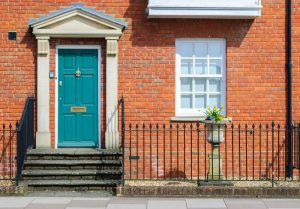 Although prices decreased by just 0.1% Halifax said the drop was ‘notable’ because it was the first time since 2010 prices had fallen consecutively for four months.
Although prices decreased by just 0.1% Halifax said the drop was ‘notable’ because it was the first time since 2010 prices had fallen consecutively for four months.
Over the last quarter – from April to June – prices fell by 0.9%, according to Halifax, and there was an annual increase of 2.5%. It means the average UK house price is now £237,616.
Russell Galley, managing director, Halifax, explained the last time house prices fell four months in a row was when the housing market was struggling to gain traction following the shock of the global financial crisis.
But he added that it was not all bad news. “Activity levels bounced back strongly in June, which is typically the busiest month for mortgage activity in the UK,” he said.
“New mortgage enquiries were up by 100% compared to May, and with prospective buyers also revisiting purchases previously put on hold, transaction volumes rose sharply compared to previous months. However, whilst encouraging, it remains too early to say if this level of activity will be sustained.”
Stamp duty holiday
The data comes just as chancellor Rishi Sunak is expected to announce measures in his Summer Economic Update tomorrow (Wednesday) to help get the economy moving again following the pandemic.
It is expected one such measure will be to introduce a ‘stamp duty holiday’ for properties up to £500,000.
Jeremy Leaf, north London estate agent and a former RICS residential chairman, said: “The direction of travel in coming months will depend on the degree of support offered by the government and how quickly the economy can recover when furlough in particular is withdrawn.
“Another factor of course now is stamp duty and any other measure introduced by the chancellor to increase activity.
“Certainly, we are starting to see supply increasing and greater realism in sales agreed so do not expect prices to rise sharply in the near term.”
First-time buyers
Miles Robinson, of online mortgage broker Trussle, thought the slowdown had opened a window for first-time buyers with a sizeable deposit. But he said next-time buyers also appeared undeterred.
“When comparing the six weeks before the property market freeze with the six weeks after, we saw a 206% and 209% increase in first-time buyer and next-time buyer applications respectively.
“This buoyancy is seen further in the so-called ‘rural renaissance,’ whereby city dwellers are opting to relocate to the countryside.”




